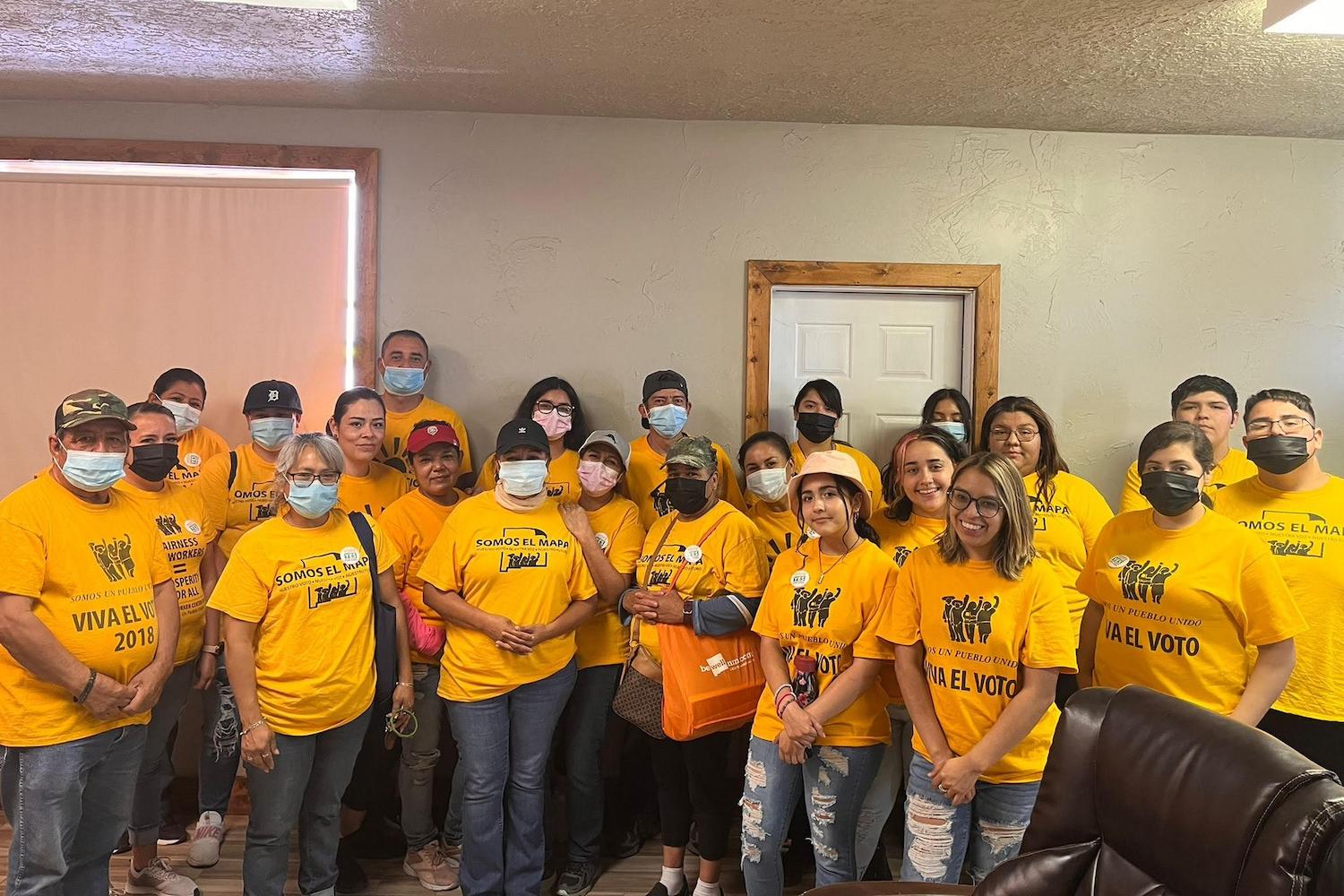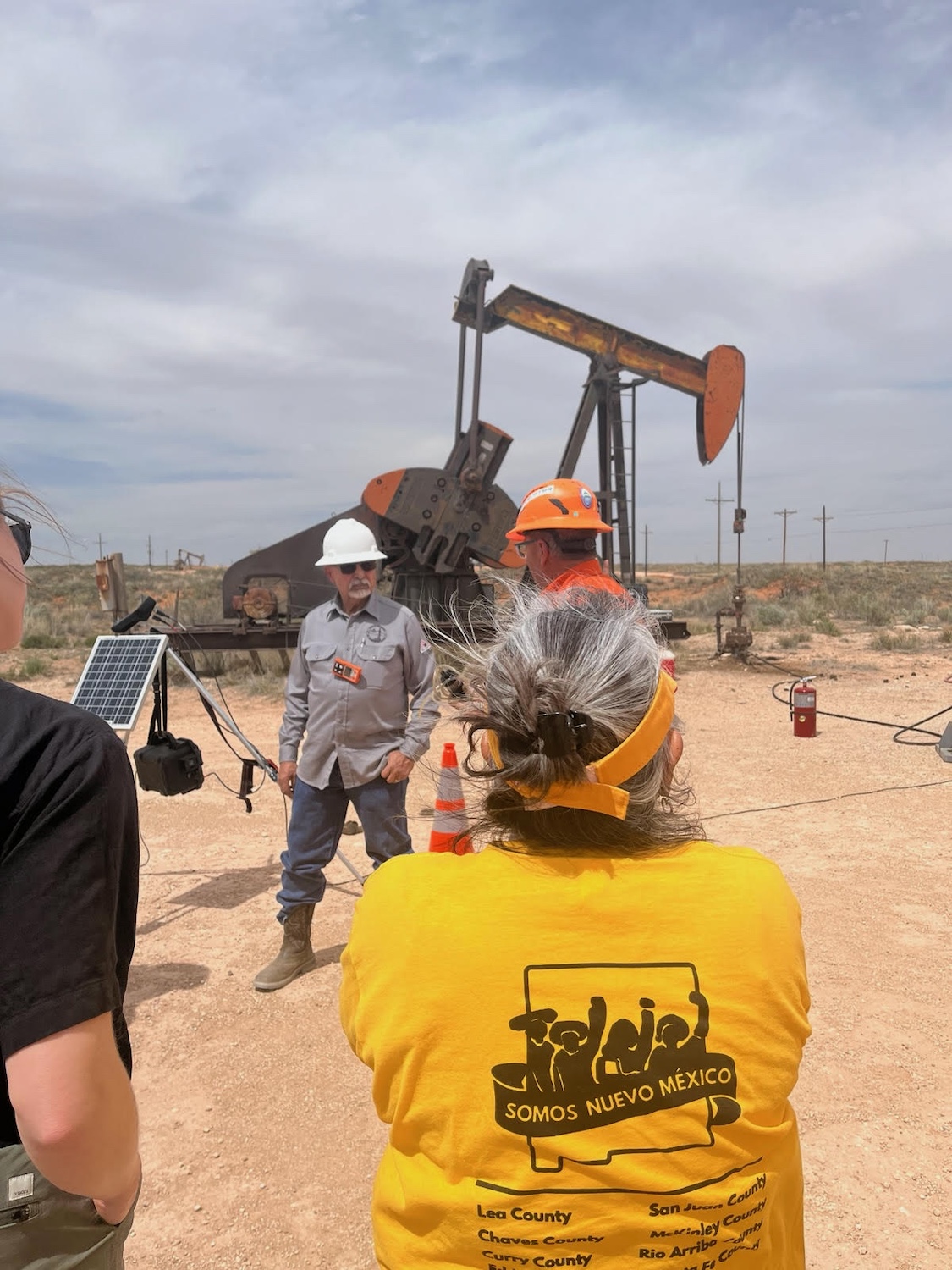
(Image: Somos un Pueblo Unido)
New Mexico’s Permian Basin, one of the top oil regions in the United States, could reach peak production as early as 2030. The change is essential to reduce carbon emissions in the fight against climate change, but without proper planning, it will significantly impact oil and gas workers. Immigrant workers are set to suffer the worst from the fallout, forcing them to abandon the place they call home in search of financial security elsewhere.
“They've already been displaced from their home countries, in part because of climate, in part because of other economic and political issues,” Marcela Díaz, executive director of the immigrant rights organization Somos un Pueblo Unido, told TriplePundit. “So here they are, and they want to stay. Our members want to stay in this region where they have grown roots and where they're raising their children.”
That won’t be possible without substantial investment in workforce development. As of now, the oil and gas industry is the only major employer in the area. While other industries are set to enter the region, immigrants who work in the oil and gas sector will need further education and training to fill those positions, Díaz said. But many are not eligible due to their undocumented status. A just energy transition is dependent on funds and programs that will bridge the gap, which is where Somos comes in.
A dangerous and exhausting industry
Oil and gas workers put in long, hard hours in conditions that take a toll on their bodies and health. In the Permian Basin, they work 12-hour days that stretch to 16 including the commute. Due to the physical demands of the job, most workers are forced to retire by the age of 55, Díaz said.
In this non-union region, workers don’t have pensions or retirement payments available to them when that time comes. While U.S.-born oil and gas workers can at least collect Social Security income once they reach retirement age or become too disabled to work, those who are undocumented are ineligible, despite paying into the fund. Likewise, they cannot receive unemployment when the industry slows, as it will after peak production, or has to shutter temporarily like it did at the start of the COVID-19 pandemic.
“It's one of the least regulated industries when it comes to health and safety,” Díaz said. “This is the reality for folks, so we're organizing around all of those issues and making sure people know what their rights are when they get injured on the job. We start where people need support, and help, and want to organize to better their conditions … This is what our major first step was, to expose the reality of life for families within that context.”
At first, it was the workers' wives who most often showed up to organize, she said. Only about 15 percent of oil and gas workers in the area are women. In an effort to include workers and accommodate their schedules, Somos built a committee to meet in the evenings and during weekends, resulting in hundreds of members meeting regularly. Focus groups are also done on weekends, so workers can speak directly about their experiences and needs related to the low-carbon transition.

The evolution of Somos un Pueblo Unido
Somos didn’t begin in the climate justice and just transition arena. The 28-year-old organization initially worked on more traditional immigrant rights issues, such as removing Immigration and Customs Enforcement from local jails, preventing deportations, and securing access to financial aid, in-state tuition and driver’s licenses for undocumented immigrants. It expanded its reach to organizing for economic justice, workers' rights protections and sanctuary policies, thanks to input from members, Díaz said.
“If you're a membership-based organization and your members are immigrants, if you're listening and paying attention, you will eventually turn into a workers’ rights and an economic justice organization,” she said. “We have five worker centers around the state, including in the Permian Basin, so that people can come and organize around those issues and try to grow power in their local communities.”
Growing that power often means taking member demands to representatives outside of their immediate area. Local politicians have strong ties to the oil and gas industry, so organizers must appeal to urban and Democrat-leaning representatives instead, Díaz said. With 42 percent of the state budget coming from oil and gas revenues, members make it a point to request their fair share via investment in workforce development.
“Just like good old-fashioned organizing, we have campaign committees and they are driving and steering the work,” she said.
Somos members helped elect U.S. Rep. Gabe Vasquez, who took a bill to Congress to fund healthcare for immigrants working in the oil and gas industry. While the bill won’t pass, Díaz said it managed to bring significant national attention to the issues faced by workers who have otherwise been overlooked.
Challenges to a just energy transition
Oil and gas families want better for their children, which no doubt helps drive their determination to organize despite long work days and little free time. “They don't want their young people to go into the industry,” Díaz said.
A survey commissioned by Somos found that nearly 80 percent of oil and gas families do not want their children working in oil and gas. Yet, there aren’t any other options unless they go elsewhere in search of jobs.
Fortunately, new opportunities are coming to New Mexico thanks to the Inflation Reduction Act (IRA), the Bipartisan Infrastructure Law and the CHIPS Act. But for oil and gas workers and their children to access those jobs, workforce development — in the form of integrated and adult education, training and certification programs, and apprenticeship opportunities — is imperative. Otherwise, employers will bring in out-of-state workers, Díaz said.
“[Recently] we were able to get flexible money outside of WIOA [the Workforce Innovation Opportunities Act] for the first time,” she said. “So this is the on-ramp to a lot of the career and technical education.”
It’s a huge step considering WIOA funds — which undocumented immigrants are barred from benefiting from — are the primary source of workforce development in New Mexico. With peak oil and gas production drawing near, Somos and its members will have to keep up the momentum from victories like this, the organization and workers are both acutely aware of how quickly it’s coming.

Riya Anne Polcastro is an author, photographer and adventurer based out of the Pacific Northwest. She enjoys writing just about anything, from gritty fiction to business and environmental issues. She is especially interested in how sustainability can be harnessed to encourage economic and environmental equity between the Global South and North. One day she hopes to travel the world with nothing but a backpack and her trusty laptop.













